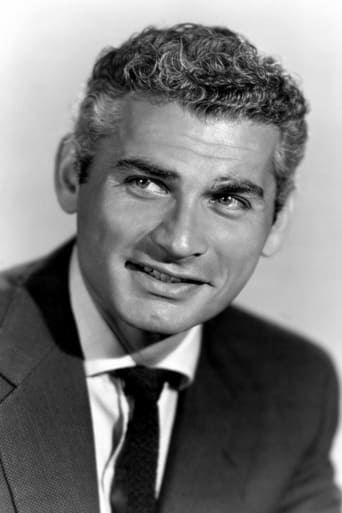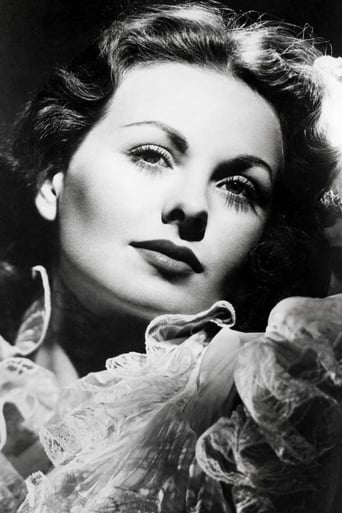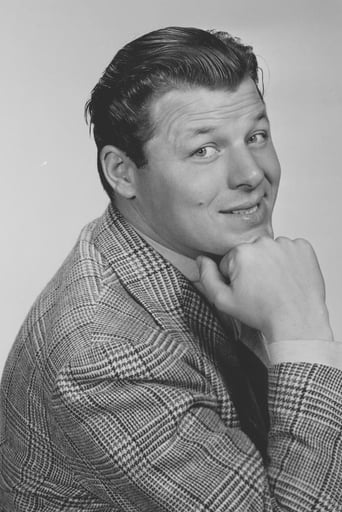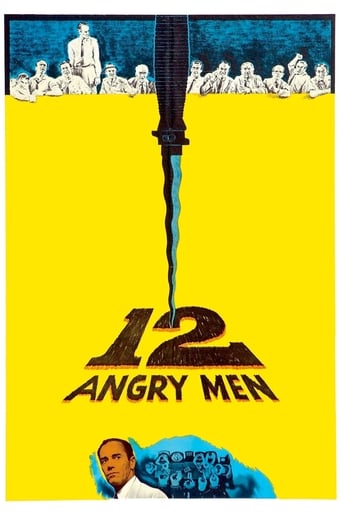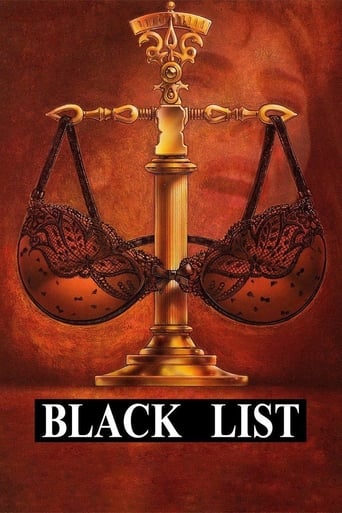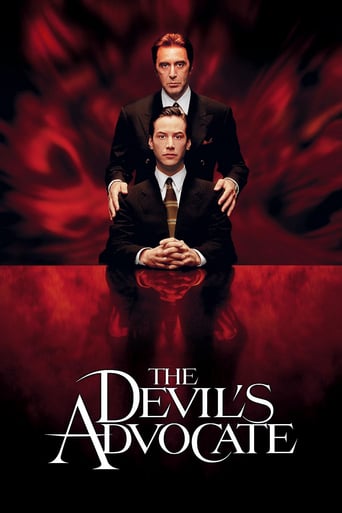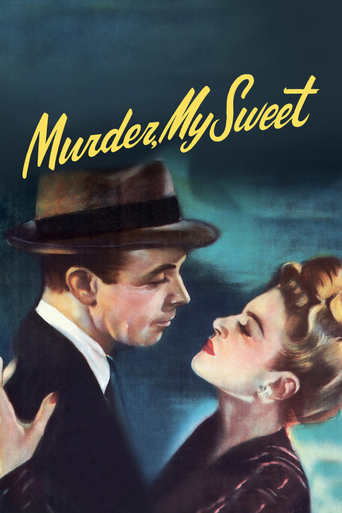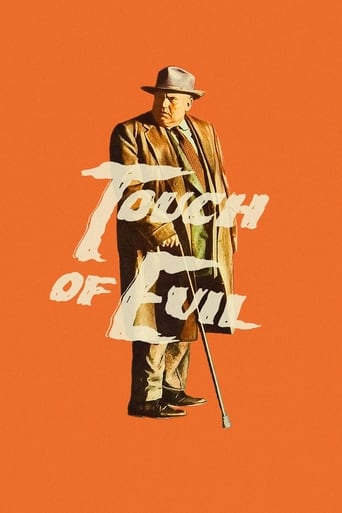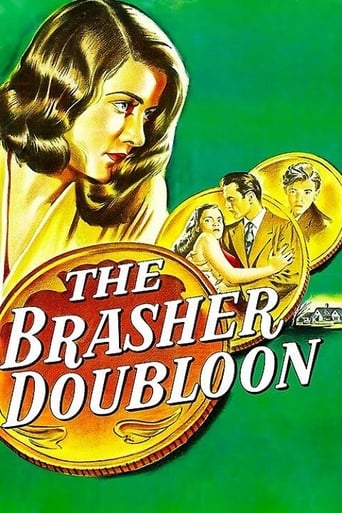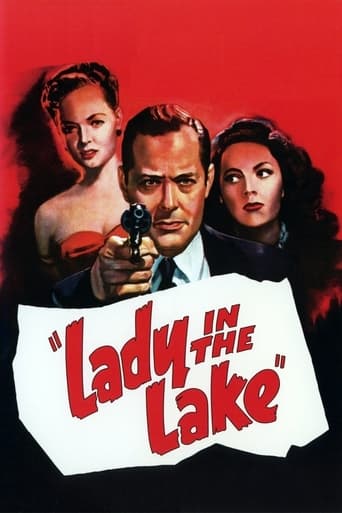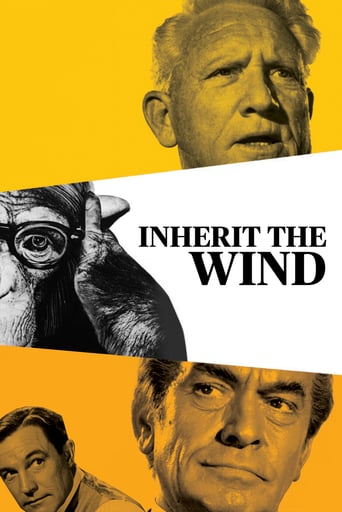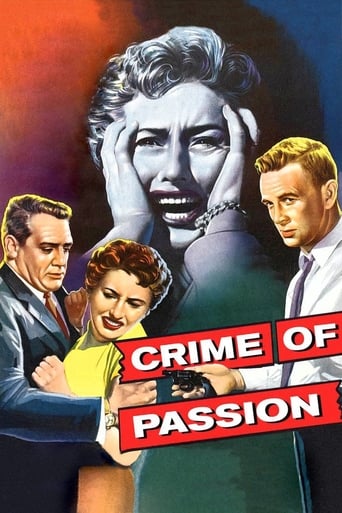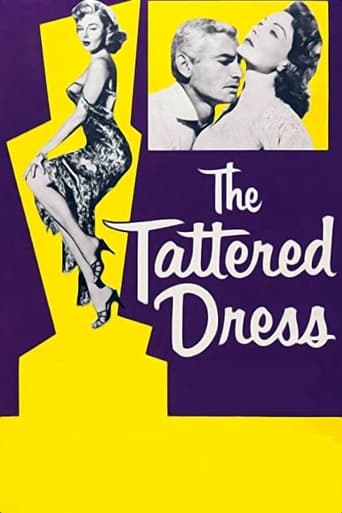

The Tattered Dress (1957)
After a wild night, wealthy Michael Reston's adulterous wife Charleen comes home with her ripe young body barely concealed by a dress in rags; murder results. Top defense lawyer J.G. Blane, whose own marriage exists in name only, arrives in Desert View, Nevada to find the townsfolk and politically powerful Sheriff Hoak distinctly hostile to the Restons. In due course, Blane discovers he's been "taken for a ride," and that quiet desert communities can be deadly...
Watch Trailer
Cast


Similar titles
Reviews
Jeff Chandler plays James Gordon Blane, a hot-shot lawyer from New York City who comes to a small town to defend some rich folks accused of murder. Blane is able to get a acquittal and almost immediately is arrested for paying off one of the jurors. The accusation is that he paid her $5000 to vote not guilty...and money Blane lost the night before playing cards is submitted as evidence of the bribe. Obviously, Blane's been set-up and no one seems particularly upset by that-- least of which the Sheriff (Jack Carson), who was torn to pieces on the witness stand in the previous case. It's a vendetta and he'll apparently stop at nothing to get Blane....and that might even include murder!This was a great film in many ways...up to a point. Rarely have I seen a film go from exceptional to crap so quickly! The first time was late in the film when Blane gets his accuser on the witness stand...she implicates herself (yet oddly folks seem to think the opposite) and then wildly stands up and faints right in the middle of the scene!! This is histrionic and stupid. Then, only moments later when a guy (George Tobias) finds a hole in the prosecution's case, the scene involving the sheriff killing this witness is also overdone and like a cliché...a bad one at that. Later, when the Sheriff is on the stand...well, it's pretty ridiculous as well! And, the summation by Blane near the end is just ridiculous! Sadly, the film had been humming along marvelously...only to sink due to some seriously bad writing that should have been edited out! And, it's frustrating that you like a movie this much and invest this much into it...only to have sloppy writing practically ruin it. The first half, I'd score an 8...the last portion a 2! As a result of a very weak second half, I'd say don't waste your time with this one.
'The Tattered Dress' is the second of four programmers released by Universal in 1957 directed by Jack Arnold, who had started the year extremely auspiciously with 'The Incredible Shrinking Man'. 'The Tattered Dress' was the first of two films he made set in the deep south: the latter being 'Man in the Shadow', in which Jeff Chandler played the honest sheriff of a fictitious cow town called Spurline who crosses swords with a ruthless local ranch owner played by Orson Welles. In 'The Tattered Dress' it's the sheriff (played by Jack Carson) who's the heavy; and Chandler the lawyer from New York come to defend a wealthy local spiv for the murder of a popular local sports hero to whom his trashy wife had lately taken a shine. After a glorious opening sequence resembling a series of dime novel covers of the period, Chandler arrives in Desert View, Nevada; and the moment he steps off the train the unfriendly looks he gets tell us we're in 'Mississippi Burning' territory. Like most Hollywood films since time immemorial it takes a remarkably cynical view of lawyers and the law ("I could spend hours telling you of innocent men imprisoned and executed because of clumsy and uninspired defences"), but treats its often lurid subject matter in a rather lacklustre and talky fashion. Jeffrey Chandler isn't the most convincing of casting as a cynical and ruthless lawyer whose motto is "If you're guilty get James Gordon Blane" (it would have been perfect for Carson, actually); and most of the excellent supporting cast aren't really at their best, with the notable exception of Edward Andrews in a very small part and Gail Russell (whose vulnerable appearance is enhanced by the regrettable fact that she was in reality drinking herself to death at the time) as a pawn in a dastardly plot by crooked sheriff Jack Carson to cook Chandler's goose.Two nice uses by Arnold of the Cinemascope screen were the way Chandler's until now estranged wife Jeanne Crain signals that their conjugal relations are about to resume by pulling shut the curtains in his hotel suite; and the slight but perceptible little sigh of relief visible on the part of the court stenographer (played by Robert Haines) when Chandler's passionate summary to the jury finally ends.
There seems to me as a writer and critic to be a bad tendency among U.S. reviewers to confuse their emotional and unaccountable reactions with information. For instance, I regard Jeff Chandler as a very good classical actor; I assert this because he has the vocal power, sufficient emotional voltage and the high intelligence to play characters in the distant past, future, positions of nobility and professions. But I also claim to be able to tell among his strongest portrayals, and those which were less successful. In "A Tattered Dress", for instance, the dress referring to the robes which cloak the naked female statue of justice, I believe Chandler has one of his most fascinating parts in this film by anyone's standards. And one of his best successes.He plays a lawyer who was refused employment as a poor student once he had been admitted to the bar in the Depression era; to overcome this injustice, he began taking clients who were criminals, who could pay him. In the years since then, he has become a famous and deeply- hated lawyer, because of those criminals whom he represents. The fascinating twist to this Jack Arnold directed noir is that he wins his original case. A husband had been accused of having killed his wife's lover, after she has come with "a tattered dress'. Then, thanks to collusion between the town's average-guy closet-dictator sheriff, and those supporting him, the lawyer finds himself accused of having bribed a juror during the case. His estranged wife returns to stand by him; he elects to be defended by the best lawyer he knows, himself. and this proves to alienate the townsfolk even further. He shakes the juror's testimony, but he must resort to a magnificent last defense, equating the tattered dress with justice itself that is thwarted, to plead his case as a human being who has been wronged more than he has wronged anyone. he is acquitted, which leads to a strongly-written climax and ending. This is a well-made and well-directed thriller; besides veteran Arnold's direction, this B/W drama features original music by Frank Skinner and Henry Mancini, fine cinematography by Carl E. Guthrie, outstanding art direction by Alexander Golitzen and Bill Newberry, set decorations by John P. Austin and Russell A Gausman. The very good costumes were the creation of J.A. Morely, Jr., with makeup being the work of Bud Westmore. Among the cast, Jeff Chandler's work as the lawyer accused is award level and memorable, varied in tone and nuanced. Others who brought to life George Zuckerman's finely-crafted script, drawn from a novel included Jack Carson as the sheriff, Jeanne Crain as the lawyer's wife, Gail Russell as the juror in question, Philip Reed as the husband, plus talented Edward Andrews Elaine Edwards, George Tobias, Edward Platt, Alexander Lockwood, Paul Birch, Edwin Jerome and William Schallert. This is a film that must be judged I assert by what it is, not what any observer wished it might have been. It is a very powerful indictment of U.s. societal justice as long ago as the 1930s; and of the citizens of a representative town who allow their prejudices to interfere with their judgment. Similar movies had been made, in the same era as this, about other democratically-elected governments and their statist countries, such as England and France. But the content of this scorching indictment of postmodernist truth-twisters and their all-too-willing victims is a very United States story, and one coming from the H.U.A.C era as well. A very strong film.
THE TATTERED DRESS has so many fascinating elements within it that it deserves to be elevated to the class of forgotten, but major, works. Jack Arnold's direction of a potentially overly-melodramatic plot manages to sidestep most of the problems, but it is the acting that is most memorable. The film's beginning uses Elaine Stewart to enormous advantage. She may have had a short film career, but you could not take your eyes off her when she was on screen (THE BAD AND THE BEAUTIFUL, SKY FULL OF MOON, HAJJI BABA, etal). She had quite a bit of talent that never saw stardom, partly because of a dog attack that left her out of the biz for a while. GAIL RUSSELL is superb...totally wonderful... in a supporting role, and the scene in which she breaks down in the courtroom deserved a Nomination. And how splendidly she handles the line about drinking!! JACK CARSON is cagey and sneaky and superbly threatening. In the lead, JEFF CHANDLER, as a lawyer, is always convincing. Low-keyed, you can tell when his character is confronted with an insurmountable problem. JEANNE CRAIN has little to do as his wife, but she is always lovely to watch. Catch this underrated film. It's worth searching for.


